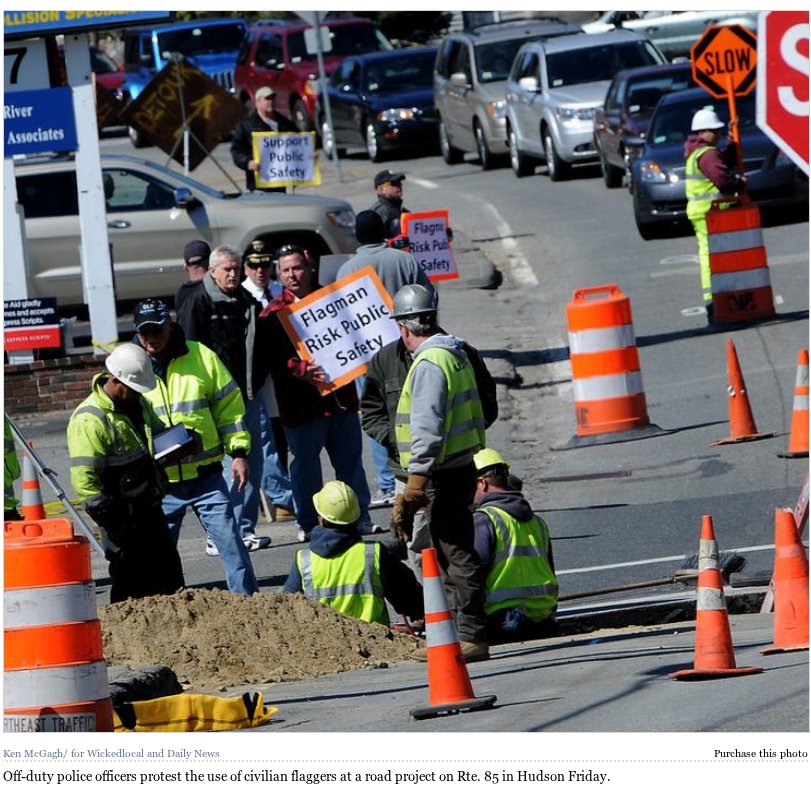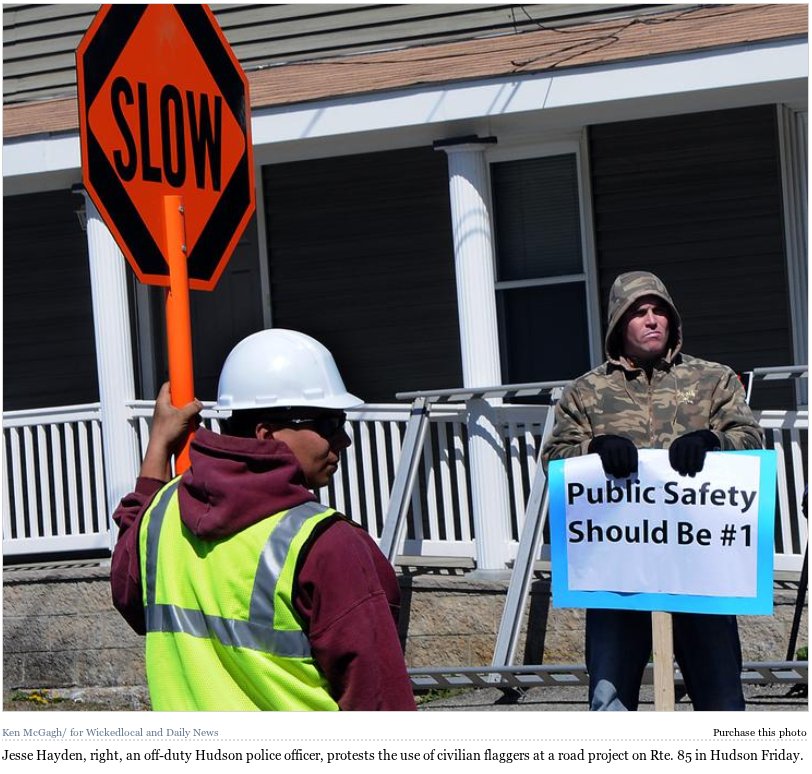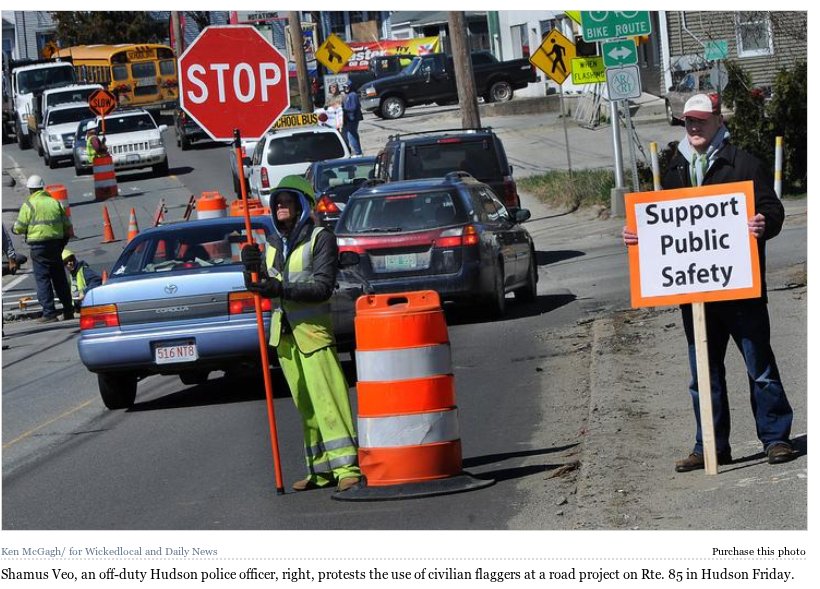
| Police protest civilian flaggers on Rte. 85 in Hudson | March 30, 2012 |
|---|---|
| Brad Petrishen 508-490-74 63 | Metrowest Daily News |
|
HUDSON --
More than 20 off-duty police officers from Hudson and Marlborough spent the bulk of the day yesterday protesting the state's use of civilian flaggers on the Rte. 85 widening and reconstruction project that started this week.
"Is $2.45 worth a life?" read one of many signs hoisted by boisterous officers who believe the state is irresponsibly cutting corners and putting lives at risk. "We're here to inform the public of an unsafe condition," Jack Donovan, president of the Hudson patrolmen's union, said yesterday morning at the start of construction in front of Rite Aid. "Their main thing is saving money over safety." The long-awaited, $8.5-million project is expected to take two construction seasons, and involves widening and resurfacing the road to aid traffic flow as well as construction of a rotary at Broad and Washington streets. The project is in the hands of the state Department of Transportation, which opted to use civilian flaggers for much of the work.


Hudson Police Chief Richard Braga said yesterday that he has communicated his preference that police details be used during construction numerous times through letters and at meetings with the state. Of major concern, he said, is that the road leads directly to Marlborough Hospital. "Any delay in transporting patients or getting ambulances to specific places could be catastrophic for victims and patients," he said. Braga also said there are three banks, an ATM, an elderly housing project and two 55-plus communities at high risk of needing emergency response. "That street is a very direct route for us to many areas, and any unnecessary delay can cause problems," he said. If police were running details, they could begin clearing traffic for emergency vehicles as soon as they heard the radio call, he said - something flaggers can't do. "Maybe not in all circumstances - I don't want to be unreasonable about this - but certainly on the main roadway, we believe police officers are better situated to move traffic," he said. Transportation Department spokesman Michael Verseckes said yesterday that although using flaggers is a cost-cutting measure, the state only uses civilians when it feels it is safe to do so. "There will be times when there's a difference of opinion, but we're not out there to do any thing that would be to the detriment of public of safety," he said. "If it was in the interest of public safety to use police officers, we absolutely would." Officers at the site yesterday scoffed at that notion. "It's unsafe. It's unbelievable," said Hudson Officer Joe Kerrigan, who put down his sign along with another officer to help a woman in a wheelchair safely navigate past construction. "She just said, 'How am I going to do my grocery shopping?'" Kerrigan said. Donovan said some of the flaggers are pulling double-duty as laborers, and don't have the ability to help the public like police officers. The mood was tense between protesters and flagmen, with officers routinely criticizing the flagmen for attempting to direct traffic - something they said they didn't have legal authority to do. Donovan said flaggers can only hold "stop" or "slow" signs and have no authority to enforce. He claimed the flaggers only make $2.45 less per hour than police officers would, and said any savings were erased because the state was using three flaggers to do a job two cops could handle. Verseckes said it was hard to say how much more police officers would make because it varies by town. However, the state wouldn't have opted for flaggers if it didn't think it would decrease overhead, he said - something that's important for an agency battling highly publicized budget woes. Braga said the state does plan on using police details for some of the jobs, mostly in the latter part of construction. "I hope over time we'll have the opportunity to iron out these problems," he said, adding that the state has said it will keep the lines of communication open. Given the start to the project yesterday, it seems likely those lines could be tested sooner than later. "(Traffic) was moving, but it was heavy, and it would be extremely difficult for us to get an emergency vehicle up there quickly," Braga said. |
|



Send comments to:
 hjw2001@gmail.com
hjw2001@gmail.com
|


